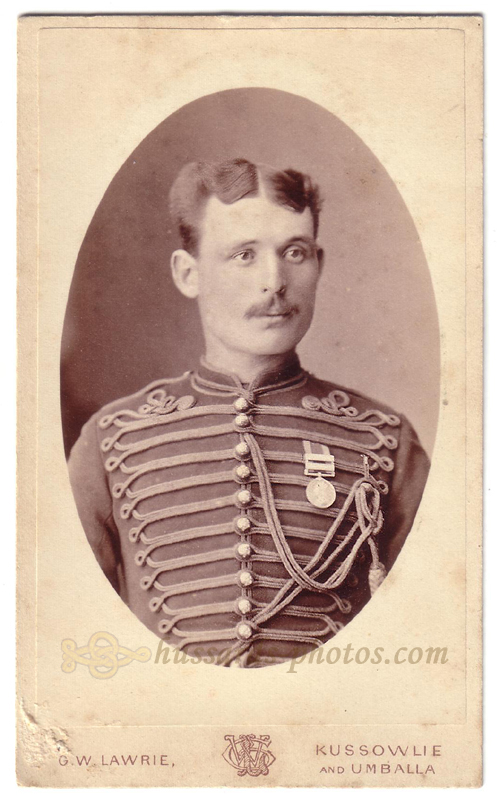|
This Other
Ranks artilleryman is a 1878-80 Second Afghan War veteran, as
shown by his wearing the Afgan War Medal with two Clasps.
10 Horse
Artillery batteries took part in the war, but only one of them
took part in more than one battle granting a Clasp :
F Battery A Brigade, which was present at Peiwar Kotal, Charasiab,
and Kabul.
The
Battery served in the Kuram Field Force under Sir Frederick
Roberts, who would declare, on being granted the freedom of the
City of London, on February 14th, 1881, "in recognition of
his gallant services in Afghanistan, wher, supported by brave
soldiers, he so well and nobly upheld he prestige and reputation
of the British Army" :
"(..)
When I was appointed to the command of the Kuram Valley Field
Force in October, 1878, that force consisted of one regiment of
British and five regiments of Native infantry ; one squadron of
British and two regiments of Native cavalry, one battery of Royal
Horse Artillery, and two batteries of Native mountain artillery.
The British elemant was so weak that it was imperative it should
be of the very best material. In the artillery and cavalry it was
so, nothing could have been finar than the F Battery of the A
Brigade of Royal Horse Artillery and the squadron of the 10th
Hussars - and why ? Because, gentlemen, as you probably all know,
the short service system has as yet been only partially applied to
those branches of the service. The men were old and seasoned
soldiers. I believe I am correct in saying that there was not one
death in the battery from diseases for several months, and such a
thing as a man falling out on the line of march was unknown ;
although their endurance was severely tried by having to trudge on
foot, while the guns were carried on elephants, the
difficulties of the mountainous country rendering it impossible at
times to take wheeled artillery with us. (...)"
The
Battery would stay at Umballa in the early 1880s before being
ordered to Meerut in 1884. |

